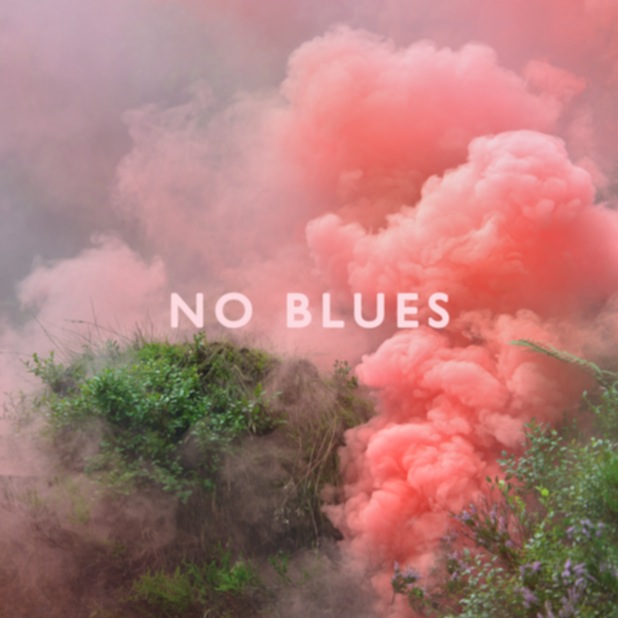
News
HMS Is Facing a Deficit. Under Trump, Some Fear It May Get Worse.

News
Cambridge Police Respond to Three Armed Robberies Over Holiday Weekend

News
What’s Next for Harvard’s Legacy of Slavery Initiative?

News
MassDOT Adds Unpopular Train Layover to Allston I-90 Project in Sudden Reversal

News
Denied Winter Campus Housing, International Students Scramble to Find Alternative Options
Los Campesinos! Know "Blues"
Los Campesinos!-No Blues-Wichita Recordings-4 STARS

Welsh indie pop group Los Campesinos! started off with a youthful, joyous sound, but in recent years they’ve injected gloom and despair into their work, progressing towards a more mature image. Titled “No Blues,” the band’s newest album seems poised to take a turn for the optimistic, but with Los Campesinos! first impressions are often deceptive. On “No Blues,” the group has captured the best of both worlds—combining the darker tone that has garnered applause from critics with the youthful energy they once feared would shackle them to the “twee-pop” genre.
After a deceptively calm start the opening track, “For Flotsam,” explodes with palpable enthusiasm. The beat drives forward, with a buzzing undertone that suggests energy barely contained. Lead singer and lyricist Gareth Paisley's voice is strong, almost jubilant as he exclaims “Knees knocking and / Blood flowing so / I want you to know that I want to.” The images here are so bursting with life that they almost obscure memory of the track's darker opening lines: “You say you're an old cassette that has gone and spilt it's spool.”
Despite the band’s moments of levity, the darkness that has marked its older releases is irrepressible, reappearing throughout the album. Themes of death and decay emerge everywhere—subtly in some songs, but taking over entirely in the self-described murder ballad “A Portrait of the Trequartista as a Young Man” and the aptly named “Cemetery Gaits.” In an ironic twist at the beginning of “As Lucerne/The Low,” it’s revealed that the album title, rather than promising an upbeat collection, was merely foreshadowing the lyric “There is no blues that can sound as heartfelt as mine.”
The lively, passionate sound that kick-started the career of Los Campesinos! career is still there, tempered by a sense of despair. The imagery is rich, but in typical indie-angst fashion, it's hard to tell if Paisley is meditating on the transience of life or merely upset over his latest heartbreak when he croons lines like, “As I describe my lonely, you listen very clear / The last set of goalposts taken down, summer of an odd-numbered year.”
Despite the darkness, “No Blues” contains infinite reserves of energy. The pulsating electronic sound is infectious. Organized melodic chaos has always been the band’s forte, and they've managed to improve even upon that—the complexity is there, tighter and more cohesive but still managing to avoid predictability. The last two tracks exemplify this feat: both begin simply, “The Time Before the Last Time” gradually dissolving into cascades of harmonic noise while “Selling Rope” is marked by skirling instrumental offshoots and plaintive background vocals.
No song better epitomizes the blend of angst and excitement that is “No Blues” than “Avocado, Baby,” originally released as a single. The repeated offset delivery of the madcap background line “A heart of stone, rind so tough it's crazy, that's why they call me the avocado, baby,” seems geared to get an audience pumped up and dancing, in sharp contrast to the naked pain of the jolting pause after “I feel like I'm the host of a terrible game show and the guests on today's quiz are celebrities / Won't respond to any clues, they're just cracking jokes for views, but the answers to these questions mean everything.” The tension between periods of boldly shouted lyrics and periods of chaotic instrumentation over more reserved vocals that enlivens so many of the album's tracks is clearly apparent in this moment.
Paisley clearly loves playing with his words and mixing his metaphors. Self-consciously clever lines such as “You'll know us by the way we crawl, you'll know us by our / Cemetery gaits” and “I'll be gloomy ‘til they glue me in the arms of she who loves me” turn out to be strangely compelling. On first listen most of the lyrics seem nonsensical, a disconnected series of bizarre images—“it's clear if you're the doormat / I'm the hickory,” “Doe Eyes you / Should stay at home licking batteries,” “Dirty in dish rack drips the Holy Grail,” etcetera—but with a bit more attention they begin to coalesce into intriguing, multilayered narratives that express a poignant mixture of hope and despair.
It all comes together to create an album that’s rich and infectious. Slower-paced tracks are interspersed among the more blatantly enthusiastic songs, but the album never loses its drive; even the calmer tracks conjure a feeling of power just below the surface, ready to burst forth. In both lyrics and instrumentation, carefully constructed chaos is the rule. And never has chaos seemed so appealing.
Want to keep up with breaking news? Subscribe to our email newsletter.
